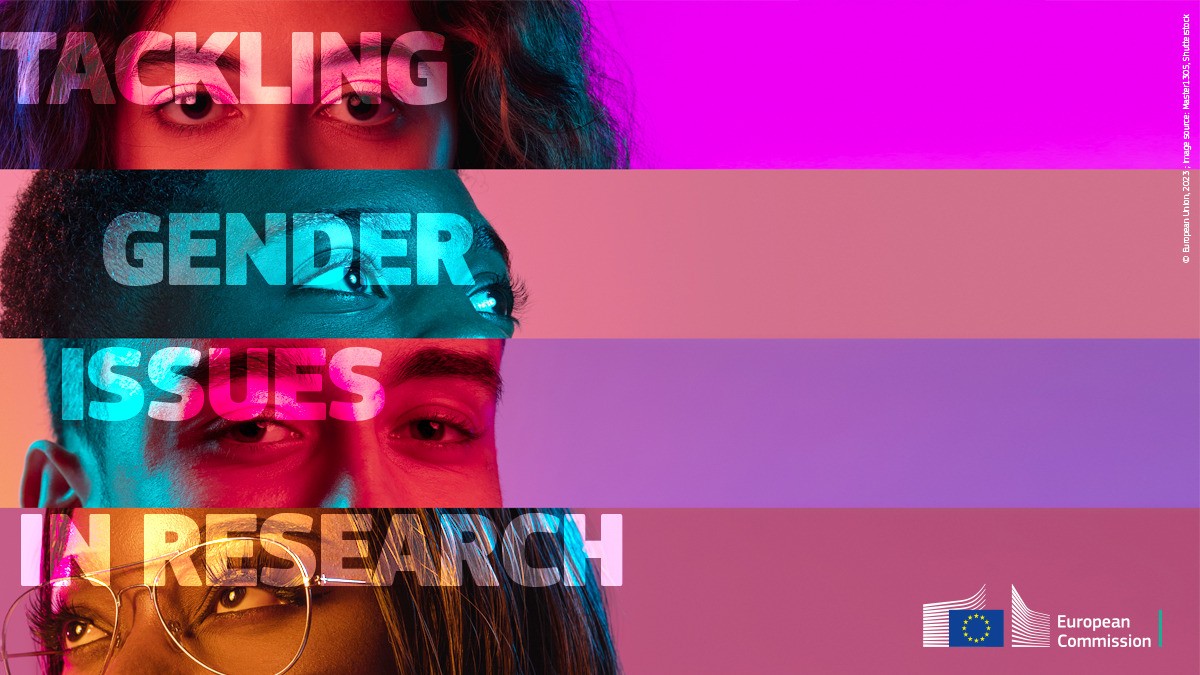Gender equality is a fundamental value of the European Union, enshrined in its Treaties and the Charter of Fundamental Rights. However, gender inequalities persist, particularly in research and innovation (R&I). Despite some positive developments, women are still underrepresented in many fields and in in senior academic and decision-making positions.
These disparities stem from various challenges, including unconscious bias, lack of mentorship and limited access to resources, which continue to hinder the full participation of women in R&I.
Europe’s Response: Initiatives Promoting Gender Equality
To address these challenges, the European Commission has introduced several measures aimed at promoting gender equality in R&I:
- Gender Equality Plans (GEPs): As a new eligibility criterion under Horizon Europe, institutions applying for funding must have a GEP in place. These plans are recommended to include provisions for work-life balance, gender balance in decision-making, and measures against gender-based violence, including sexual harassment – Read more.
- Integrating the Gender Dimension: Horizon Europe also requires the integration of the gender dimension in research and innovation content. This means that projects must consider sex and gender analysis, including intersectionality, in their research design, implementation, and reporting – Read more.
- Gender balance: Horizon Europe projects should aim to have an even, 50/50 participation rate of both men and women amongst teams and in leading roles. In Horizon Europe, gender balance among researchers is a ranking criterion for proposals with the same evaluation scores.
- A new EU Award for Gender Equality Champions: was created under Horizon Europe to recognise and celebrate the outstanding results achieved by some change-driving academic and research organisations in the implementation of GEPs. – Read more.
- Marie Skłodowska-Curie Actions (MSCA): The MSCA programme supports researchers at all stages of their careers, promoting mobility and skills development while paying l attention to gender equality – Read more.
- Gender equality has been a priority of the European Research Area since 2012. Promoting gender equality and fostering inclusiveness while focusing on inclusive GEPs, counteracting gender-based violence and the integration and evaluation of the gender perspective in research and innovation belong among actions of the ERA Policy Agenda 2022-2024 – Read more.
Success Stories: Women Leading the Way in EU Research
These initiatives have already yielded significant results, as seen in the stories of several remarkable women in science:
- Prof. Rana Sanyal, Türkiye’s first Marie Curie fellow and winner of the 2024 European Prize for Women Innovators, credits the MSCA with empowering her to embrace courage as her most precious core value. Her work exemplifies the impact of EU support for women researchers – Read more.
- Dr. Magda Bou Dagher Kharrat, who plays a leading role in the EU-funded SUPERB project, highlights that leadership qualities and accomplishments are not confined to any gender. Her achievements demonstrate the importance of a supportive environment for women in science – Read more.
- Dr. Anne L’Huillier, 2023 Nobel Prize Laureate in Physics and former MSCA beneficiary, attributes the early support she received from the MSCA as crucial to the beginning of her career. Her success story is a testament to the long-term impact of investing in women in research – Read more.
Learn more about the EU’s ongoing efforts and support for gender equality in research & innovation here.
Source of the article: Gender Equality in EU Research: Empowering Women, Fuelling Innovation | LinkedIn

